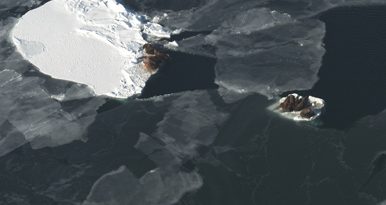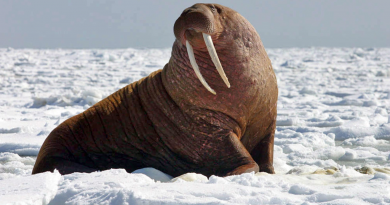Blog – Arctic policy after the U.S. Election, damage control ahead?
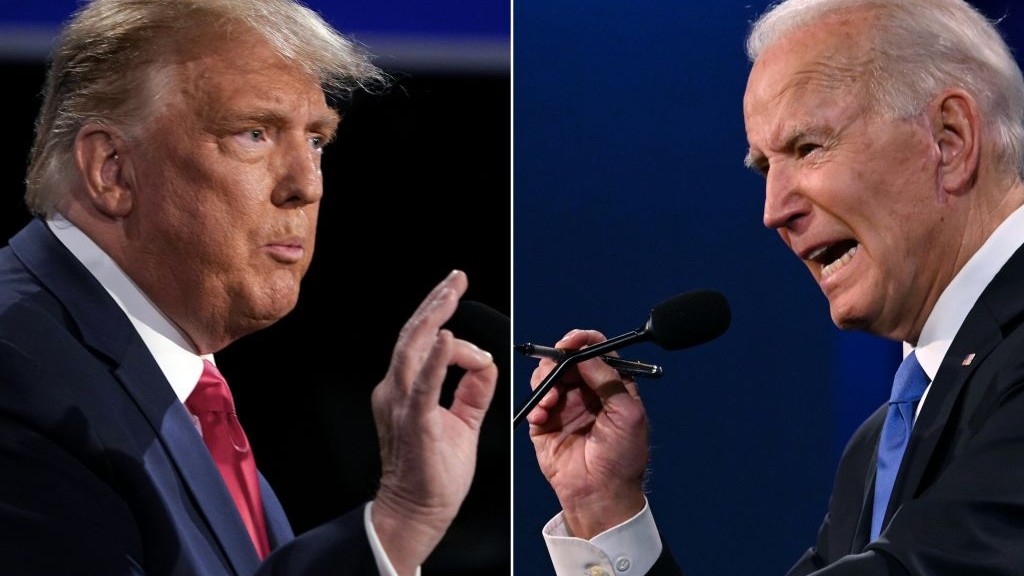
To say that United States foreign policy has experienced major upheavals, many of which have caused far more harm than good, over the past four years would be a serious understatement, and US Arctic policy has been no exception.
Many of the Arctic initiatives developed under the administration of President Barack Obama, who was the first sitting president to visit the Alaskan Arctic in 2015, and a strong proponent of combating climate change in the far north, have either eroded or simply dismissed under the current administration.
Moreover, the progress the United States achieved under the Obama government in developing cooperation with major Arctic governments and institutions, including within the Arctic Council, has also been severely damaged on several fronts. In 2019, Washington began implementing a revised Arctic policy which focuses almost exclusively on hard power and the promotion of US interests above those of the Arctic community as a whole.
As with other aspects of current American foreign policy, transactional thinking and isolationism have superseded cooperation and multilateralism in the Arctic, at a time when the region is facing numerous challenges, including those which can be directly or indirectly related to climate change. Thus, as with many other areas of international relations, the election next month will have profound effects both on US policy towards the Arctic, as well as on many issues, including the effects of climate change and ice erosion, which the region as a whole is now facing.
The administration in power after what is already shaping up to be a highly contentious election process in the United States will be required to contemplate numerous changes to its Arctic policies and, in many cases, sooner is better.
Climate change is not going away
No other issue has placed the US out of step with other Arctic governments than its approach to climate change. Despite mounting evidence, including in the Arctic, to the contrary, the current administration has repeatedly insisted that this threat does not exist. 2020 marked the warmest Arctic summer measured, with levels of regional sea ice being reduced to their second-lowest levels, (2012 still holds that record).
In August this year, the last intact ice shelf in the Canadian Arctic at Ellesmere Island, split apart due to local weather conditions, and current modelling has led to predictions that the central Arctic Ocean may become free of ice in the summer months by 2035. This has had profound effects on the global environments, including in Alaska, as well as on Arctic and Indigenous communities. As a recent editorial in the journal Nature warned, the shift in focus by Washington away from regional scientific cooperation, including via the Arctic Council, would have serious detrimental effects. This view was echoed in an article this month in Foreign Affairs, which suggested that the US excessive focus on great power competition and ‘icebreaker gaps’ was a harmful distraction from the real threats of environmental degradation on Arctic communities.
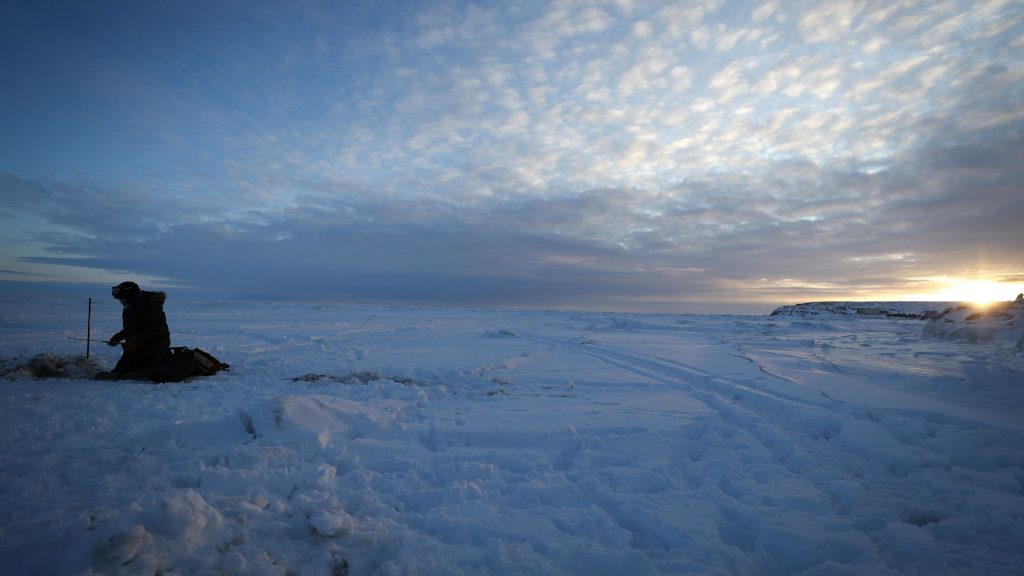
If the Democratic Party, led by former Vice-President Joe Biden, wins the upcoming election, this policy of climate change denial would likely be reversed, as the candidate has promised greater attention to the threats, and to establish an Office of Climate Change and Health Equity, all while reversing the planned American withdrawal from the Paris Climate Agreement.
It has also been concluded via a recent survey by the Yale Program on Climate Change Communication that more Americans are expressing concerns about climate change, while the number of climate change sceptics is dropping. A shift in US policy towards addressing environmental issues in the far north would go far in addressing these emergencies and would allow for renewed regional cooperation on these matters which affect the whole of the Arctic and beyond.
Arctic Council cooperation: can the US walk the walk?
Although US government officials, including recently-appointed Arctic Affairs Director James DeHart, have repeatedly stated that Washington is seeking closer relations with its fellow members of the Arctic Council, the administration’s dismissive and sometimes belligerent policies towards other regional governments have created significant obstacles to that goal.
These rifts have run the gamut from the sublime to the ridiculous. For example, the current occupant of the White House has made little secret of his scorn for Canadian Prime Minister Justin Trudeau, hampering progress in bilateral cooperation. Over the past two years, Washington has seemingly been seeking to sweep aside an agree-to-disagree stance over the legal status of the Northwest Passage, which has been in place since the 1980s, and instead to challenge Ottawa’s policy of designating the NWP as internal waters. Elsewhere, the hapless attempt by the US government to outright purchase Greenland last year drove a wedge between Washington and Copenhagen, and there remains uncertainty over the long-term goals of the US towards the island.
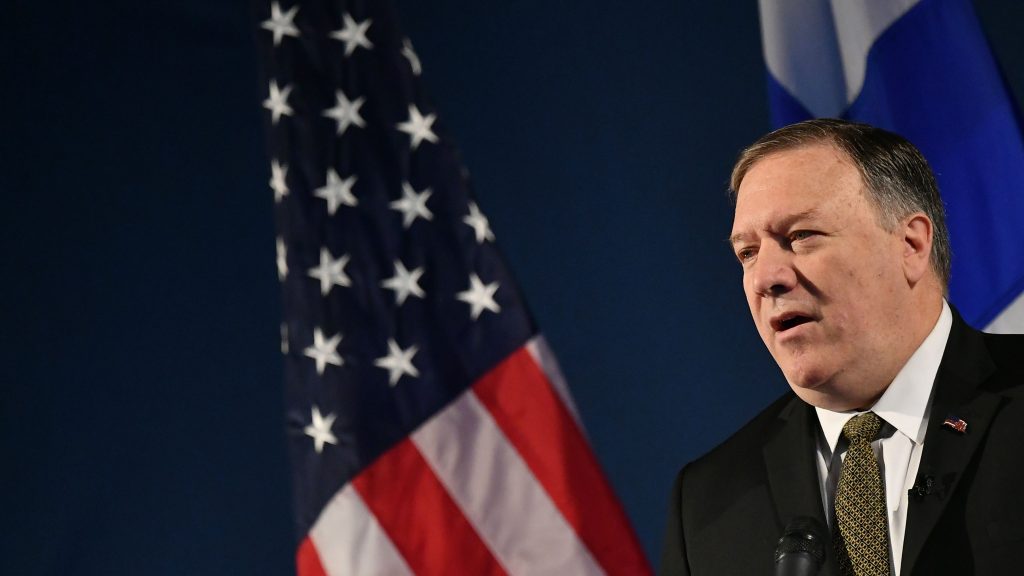
As well, according to one of the numerous published exposés covering the excesses of the current administration, the US president was reportedly unsure whether Finland was part of the Russian Federation, (although he was effusive in his praise of Finns for their supposed policies of ‘raking forests’). Earlier this year, the US Ambassador to Iceland caused a local diplomatic incident when reports surfaced that he was insisting on carrying a personal firearm. (Gun ownership is strictly regulated in Iceland, gun crime is rare, the country has no formal military, and police are unarmed during their normal duties).
On top of these diplomatic problems, the after-effects of the norm-breaking, confrontational and gaffe-filled Rovaniemi speech by US Secretary of State Mike Pompeo in 2019 still floats over Council deliberations like Banquo’s ghost. Next year’s Arctic Council ministerial meeting in Iceland will be closely watched, if only to see what stance the American delegation will take, but the bigger question is how, or whether, the US will engage the organisation once the chair position is passed to Russia, who will hold that designation until 2023. A pulling back of US engagement with the Council, or a widening rift between Washington and the other seven members, could severely damage the organisation at a time when the group’s leading role is most needed.
American ‘rules-based order’ Arctic policy: (dis)-organised hypocrisy?
One often-repeated mantra by the current US administration is the need for Arctic and non-Arctic governments to follow a ‘rules-based order’ in the Arctic, which includes respect for international law. This call has rung hollow in several quarters however, not only because the term has been widely seen as a de facto synonym for ‘American hegemony’, but more specifically because US adherence to several rules, norms and laws in the Arctic in recent years has been sporadic at best.
In addition to walking away from the Paris Climate Accord, (a decision which this week was publicly criticised by Beijing, the largest country within the pact), the US has also continued to decline ratification of the United Nations Convention on the Law of the Sea (UNCLOS), a stance which has seriously dented attempts by Washington to set rules on emerging Arctic sea routes.
The ‘Buy Greenland’ debacle did not help improve the impression of a US government which takes a cherry-picking approach to Arctic laws. One of the lessons learned from the incident was that the current administration was either ignorant or dismissive of the Denmark-Greenland 2009 Self-Rule Agreement [pdf], and specifically Article 21(1), (‘Decisions regarding Greenland’s independence shall be taken by the people of Greenland,’), which decrees that Copenhagen has no legal right to negotiate a transfer of sovereignty. Moreover, the entire affair perpetuated a stubborn myth that the Arctic is an unpopulated legal vacuum where ‘assets’ can be acquired or traded, (for example, it was subsequently reported that the administration was mulling over exchanging the US territory of Puerto Rico for Greenland).

Rules and norms in the Arctic have been developing at a more rapid clip, and the US has been in the middle of many successful regional agreements including the Polar Code covering civilian ship traffic in the Arctic and around Antarctica, the Central Arctic Ocean fishing moratorium, and cooperation amongst Arctic coast guards. This momentum should be kept up, but with the view that the US may need to more carefully consider compromises, and keep its unilateralism further in check, in exchange for a more stable far north.
The need to rethink Arctic security
US thinking on Arctic security issues has changed course from a focus on climate change and human security to an emphasis on great power competition and the need to demonstrate greater hard power in the region to counter growing Chinese and Russian activities. However, there is still a lack of clarity regarding what the United States considers imperative in the region in terms of security, while signs are appearing that the current direction in Arctic strategic planning is resulting in many gaps in information. The current US government has called for a ‘fleet’ of icebreakers by 2029 to replace the two aging vessels which operate in the Arctic, a very tall order given the uncertainty of the American economy at present, and the uncertain timetable of the country’s recovery from the pandemic.
At the same time, the economy of Alaska has been significantly hard hit by the cratering of global energy prices and the loss of tourism revenue caused by COVID-19. Alaskans will also be voting on the controversial ‘Ballot Measure 1’, which would raise oil taxes in the state. Critics have argued that the move would be at best a short-term solution, underscoring the problem of underdevelopment in the American Arctic.
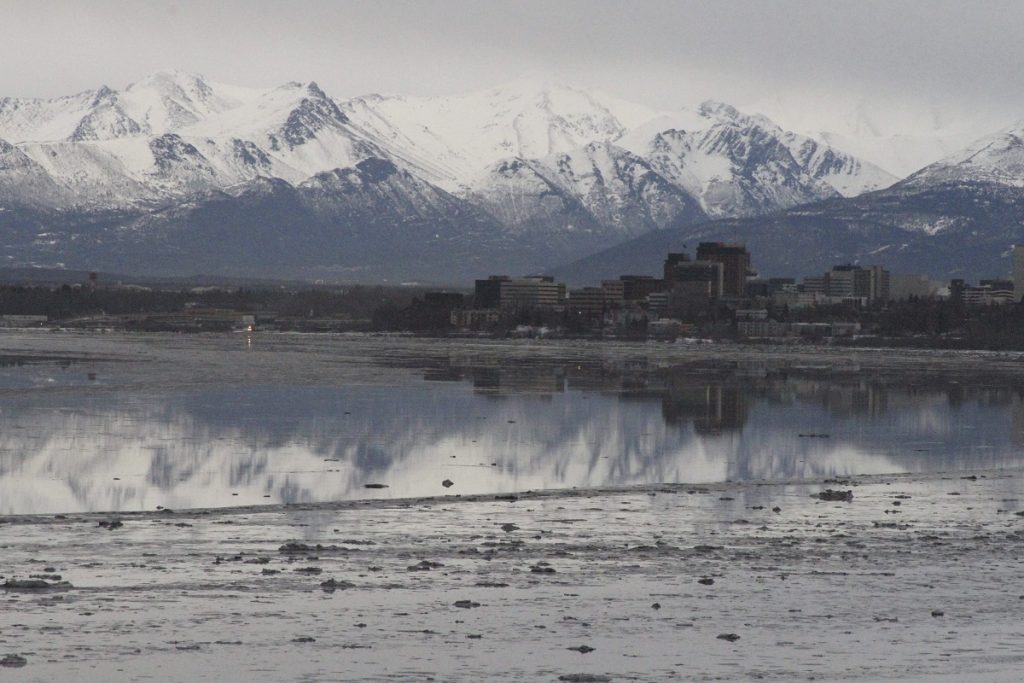
Many areas related to ‘non-traditional’ security, which examine the security of individuals and communities, have persisted in the Arctic, including health and safety during and after the pandemic, access to food and basic needs, and economic opportunities, as well as human security issues affecting Indigenous Persons in the far north. Here again, the US is in a prime position to undertake a leadership role in the region, a role from which it has walked away in the past, in favour of an almost exclusive state-centric approach.
The China factor
Of all the non-Arctic states which have sought to expand their interests in the region, including Britain, Germany, Japan and even Singapore, it is China which has raised the most concern, and increasingly the most ire, in Washington. As overall relations between the US and China continue to deteriorate, this rancour has begun to spill over into the Arctic, with policy statements from Washington frequently citing Beijing as a challenger to regional security despite Beijing not having challenged either laws or norms in the far north.
This is not to say that some of China’s policies in the Arctic, and towards some Arctic governments, have not been problematic. While Chinese Arctic cooperation with Russia is likely to fully resume after the global health crisis has subsided, Beijing has found that building a Polar Silk Road in other parts of the far north have been much more complicated. Sino-Canadian relations remain corrosive, and a planned Chinese investment deal in a Nunavut gold mine may be collateral damage. China’s relations with Sweden have also chilled over human rights and investment issues, and the previously strong relationship between Helsinki and Beijing may also be heading into trouble in light of a decision made by the Finnish government this week to cancel its extraction treaty with Hong Kong, in light of that city’s draconian new national security laws.
Nonetheless, US policies of unilaterally maligning China’s presence in the Arctic, and seeking to leverage Beijing out of the far north, are a non-starter. China may not be a ‘near-Arctic state’ in strict terms of geography, but it is now very much a regional stakeholder and will not be easily dislodged from that status.
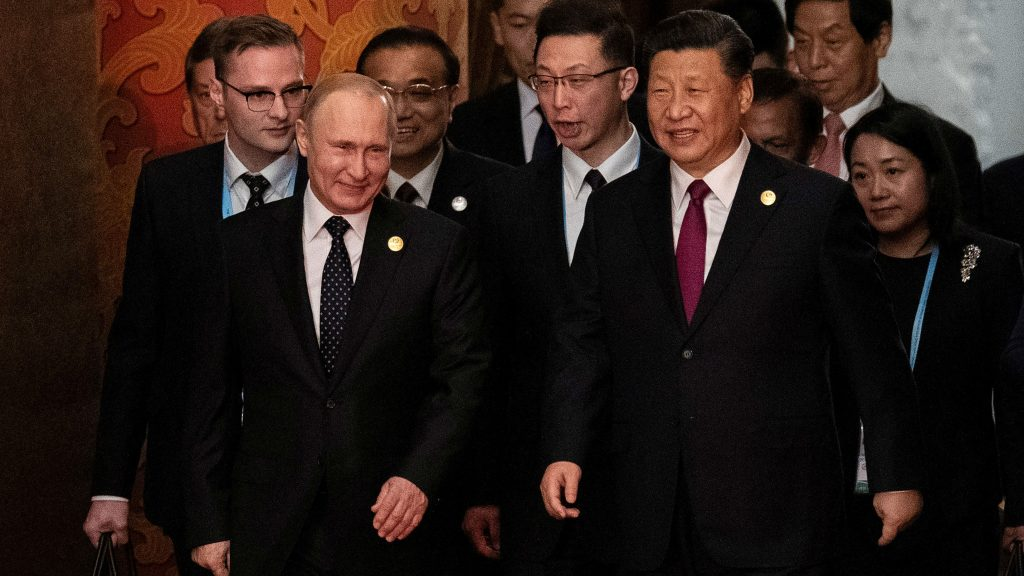
The question now is how Washington will effectively engage China in the Arctic, and also whether Arctic affairs could be a conduit for keeping a communications line open in light of worsening Sino-US relations on other fronts. There is precedent for this, specifically during the six-year diplomatic freeze between China and Norway over the 2010 Nobel Prize incident. Despite a suspension of official bilateral relations between Beijing and Oslo, Arctic events, conferences and projects, including the China-Nordic Arctic Research Centre (CNARC) were one means by which the two states could maintain dialogues. By assuming a stance that China has no place in the Arctic, however, the US is slamming those doors and simply prompting Beijing to view Washington as an obstacle to be circumvented as Chinese Arctic engagement polices widen and deepen.
Moreover, signs began to multiply by the end of this year that the Chinese economy had begun a slow but steady emergence from the worst of the pandemic-induced recession, recording a GDP growth rate for the third quarter of 2020 at 4.9%, sluggish by China standards but a figure well out of reach by most Western economies.
If the United States remains unable to bring its coronavirus situation under better control, Beijing’s comparative global economic power may rise significantly next year, creating further problems for the Sino-American relationship, including in the Arctic. Thus, the US may need to rework its thinking about China’s Arctic presence to reflect the possibilities for engagement while examining future strategic challenges, including potential ‘dual-use’ activities in the region on Beijing’s part.
Where next?
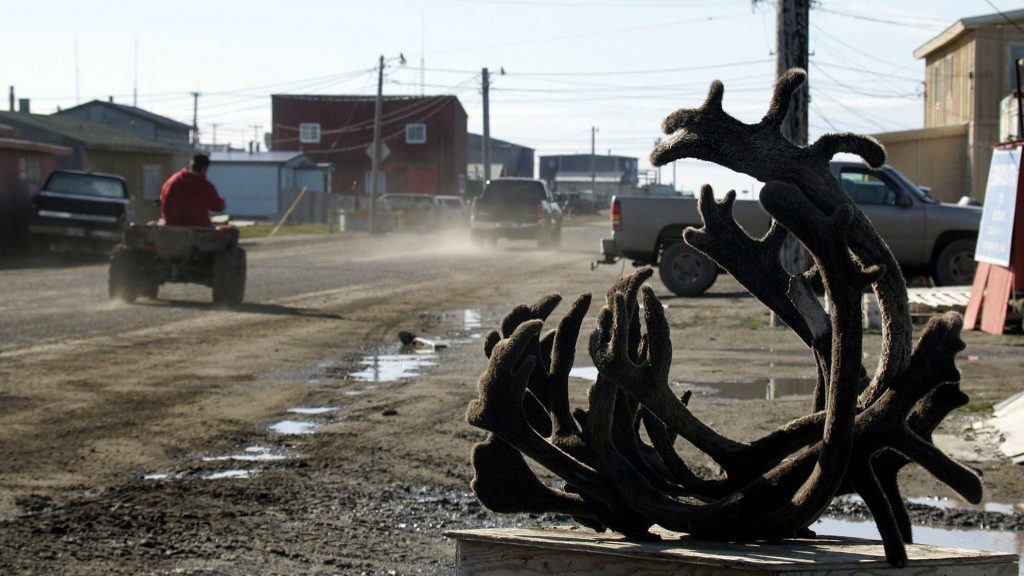
The US remains a key actor in numerous Arctic affairs, and its presence, or lack thereof, will continue to shape the region in ways which at times cannot be predicted. The past two years have witnessed a considerable degradation of American Arctic policy which has often confounded Washington’s partners in the region. Climate change will continue to affect the region under current conditions, creating numerous effects which will spread through the far north and beyond.
The Arctic will be of growing interest to non-Arctic states, not just China, and so the need to balance Arctic and outside concerns becomes paramount, and the other balancing question, between environmental responsibility and emerging areas of economic development, is also very much present. All of these questions will not only affect state capitals but also approximately four million people, including Americans, currently living in the Arctic. A change of course in US policy is therefore greatly needed, and swiftly.
Related stories from around the North:
Canada: Are potential Arctic security threats eclipsing urgent action on climate? A new study makes its case, Eye on the Arctic
China: Qingdao plays pivotal role in China’s Arctic strategy, Blog by Mia Bennett
Denmark: COVID-19 could delay Kingdom of Denmark’s Arctic strategy, Eye on the Arctic
Finland: Finland and Russia discuss cooperation between Arctic and Barents structures, The Independent Barents Observer
Iceland: Nordics should aim for common approach to China’s Arctic involvement says report, Eye on the Arctic
Norway: Good Fences? Good Neighbours? The Diplomatic Travails of Norway and Russia, Blog by Marc Lanteigne
Russia: Russian navy conducts major manoeuvres near Alaska, The Associated Press
Sweden: Sweden to re-establish northern regiment, fears armed attack, The Independent Barents Observer
United States: Trump Administration approves oil, gas leasing plan for Alaska Wildlife refuge, The Associated Press

